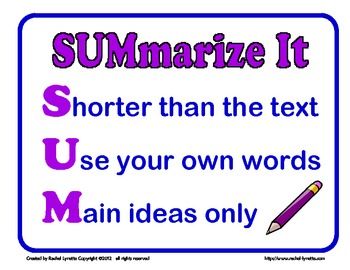|
Ruben Luna
3/26/2020 23:45:30
The way the story describes the break in gives a sense of tremendous surprise when it happens. Also the way the break-in is setup gives The sense of high chance of capture which inevitably happens in the end of the scene, lastly the way the enforcers are described has a sense these people don’t care about the well being of the captured prisoners when their doing there job, and they just want to instill fear in them at any cost.
Reply
Ralph Moran
3/27/2020 14:35:56
Characterization between the two start to build up once they are arrested by the thought police. As Winston is very guilt, anger, and betrayal it plots to the point of building Winston character in the novel. As well as Julia as she is mainly hurt about not being able to see Winston anymore nor have sexual intercourse with him. Which is a rebellious acted that was based upon both of them. The character building up of who they become at the end of the novel reveals here when they get caught in the moment together which then reveals there true colors.
Reply
Pamela
3/29/2020 19:59:15
Hi Ralph! As much as Winston and Julia did have intercourse very frequent, I don’t think that during their captivity this was their first thing in mind! However, I do agree that their characterization did throughout the novel did have an influence in their actions during this moment, like you said.
Reply
Sarahi Garcia
3/28/2020 11:20:48
the story describes the break in gives a sense of tremendous surprise when it happens. The sense of high chance of capture, lastly the way the enforcers are describing but these people don’t care about the well being of the captured prisoners when their doing there job, and they just want to scare them.
Reply
Pamela
3/29/2020 19:55:30
Hi Sarahi! I agree with your statement, that the officers capturing both Winston and Julia don’t actually care about their well being since they’re practically just following orders. This is actually very accurate because it’s something that is introduced sometimes in some chapters. The people of the society care more about living than becoming aware.
Reply
Santiago Carbajal
3/30/2020 14:12:50
I agree with your comment on how the break-in represents a turning point in the story, and how it is highly surprising. I also find your comment about the description of the enforcers, or police men, very insightful, as this plays into the overall theme of the story. I find that your comment lacks substantial analysis, and I suggest that you try to provide more if it next time. I would also recommend that this analysis follow the literary concepts that have been provided, as these can yield some very interesting perceptions of the text.
Reply
Pamela
3/29/2020 19:51:05
Throughout this short excerpt, Orwell undoubtedly creates actions between the characters that are chaotic and confusing to ultimately reveal a surprising member to the reader as well as to Winston. In fact, the break in to capture Winston and Julia comes with a lot of violent actions on part of all the characters it creates a surprising tone for the reader. Still, as much as the content is hard to keep up with, the purpose is clearly stated and well put together among the lines; the tragic unfolding of Winston and Julia’s relationship.
Reply
Santiago Carbajal
3/30/2020 14:08:48
I completely agree with your statement that Orwell purposefully made the scene chaotic and full of unexpected actions. Doing so allows for the readers to remain engaged with the text and digest the scene thoroughly. I also agree with you in that the tone of the scene can also be a surprising one, given how unexpected everything in it is. I would suggest that you elaborate more on the literary concepts you decided to use, and provide more insightful analysis.
Reply
Larissa
3/30/2020 16:00:33
I agree with your comment Pamela. I agree that the way Orwell describes the violent actions occurring when the Thought Police raid Winston and Julia's shed produce a chaotic and surprising tone for the reader. I also agree that this is a tragic way for Winston and Julia's relationship to end since they both were so driven to survive the madness of the Party.
Reply
Derek Gomez
3/31/2020 16:22:14
Thank you for sharing Pamela. I agree that Orwell does create a surprising tone through the chaotic events that take place in this part of the novel. The events of the Thought Police breaking into Winston’s room and capturing Winston and Julia is a chaotic event that does create this tone. It is a tragic unfolding of Winston and Julia’s relationship and it really illustrates how totalitarianism can control the actions of people like Winston and Julia.
Reply
Santiago Carbajal
3/30/2020 14:02:02
Tone/Mood
Reply
Larissa
3/30/2020 16:12:46
I really enjoyed your response Santiago. I agree that Orwell creates a somber mood throughout Winston and Julia's capture by describing the sounds of glass shattering, the sounds of the thought police's boots getting closer to their hide out, and way Orwell describes Julia and Winston being beaten by the thought police. This overall creates a somber mood as they are discovered and will be soon punished or killed.
Reply
Larissa
3/30/2020 15:47:18
Throughout 1984, Winston is living in constant fear of being sought out by the thought police and forces himself to appear as a regular mindless citizen of Oceania. However, once he establishes a lustful relationship with Julia, they both attempt to meet each other regularly to connect and defy the Party's authority. Once Winston and Julia find an old shed that appears to be telescreen free, they finally feel comfort and independence that cannot exist in Oceania. Additionally, Winston finds a small paperweight that symbolizes peace and freedom to him. However, when it is discovered that there is a telescreen inside of the shed, the thought police make their way in and destroy the paperweight during their raid. In my opinion, since the paperweight symbolizes peace to Winston, Orwell emphasizes and makes it known that the paperweight has been shattered to pieces, thus symbolizing that any sense of freedom that Winston and Julia once had is now gone and destroyed since the Party has discovered their crimes and will punish both of them.
Reply
Derek Gomez
3/31/2020 15:46:51
Thank you for sharing Larissa. I agree that the glass paperweight is a symbol of the freedom that Winston desires and his hopes to reconnect with the past. Many symbolic events took place in this part of the novel and it really emphasizes how totalitarianism can control the reality of the people by controlling the past. I liked that you mentioned the symbolism that Orwell uses to portray this concept.
Reply
Derek Gomez
3/31/2020 14:28:19
Throughout this passage that was extracted from chapter ten of Book Two of 1984, we can see many symbolic events taking place. The first one that takes place is the voice coming from the telescreen behind the picture of St. Clement’s Church. The picture of St. Clement’s Church in the room above Mr. Charrington’s shop can be seen as a symbol of the lost past, as that church no longer exists. Winston views the picture with hope of retaining the lost past that was destroyed by the Party. However, it is the telescreen hidden behind the picture of St. Clement’s Church that leads the Thought Police to capturing Winston and Jullia. This symbolizes how the Party’s corruption has control of the past. Another symbolic event that takes place is the breaking of the glass paperweight. Winston had bought the glass paperweight because he had seen it as a symbol of reconnecting with the past that existed before the Party took over. However, when the Thought Police breaks into the room to capture Winston and Julia, someone picks up the glass paperweight and smashes it into pieces. This event symbolizes all of Winston’s hope of reconnecting with the past being destroyed.
Reply
Leave a Reply. |
What Grade is My Writing?
|
||||||
| two-step_mla_documentation.pdf | |
| File Size: | 1967 kb |
| File Type: | |

